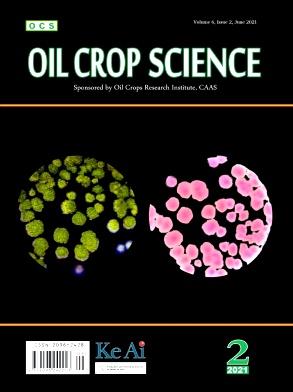加强中国的农业粮食安全:棕榈作为中美贸易战下的替代油料作物
Q3 Agricultural and Biological Sciences
引用次数: 0
摘要
由于严重依赖大豆进口,2025年中美贸易战加剧了中国石油供应链的脆弱性,对粮食安全构成严重挑战。本研究考察了大豆依赖风险,并通过多种油籽使用评估替代策略,包括以棕榈为基础的替代品。调查结果显示,高互惠关税导致美国对中国的大豆出口下降75%。棕榈油具有高产效率和成本效益,为填补供应链空白提供了可行的补充。建议通过向北扩张和与“一带一路”国家的合作,促进油棕种植。此外,多组学、基因编辑、组织培养和精准农业对解决技术瓶颈至关重要。该研究的结论是,棕榈油和大豆油将形成一个互补的系统,政策和技术投资对于加强中国油籽供应链的弹性和可持续性至关重要。本文章由计算机程序翻译,如有差异,请以英文原文为准。
Enhancing China's agri-food security: Palms as alternative oil crops under U.S.-China trade war
The 2025 U.S.-China Trade War has intensified the vulnerability of China's oil supply chain due to heavy reliance on soybean imports, posing serious challenges to food security. This study examines soybean dependency risks and evaluates substitution strategies through diversified oilseed use, including palm-based alternatives. Findings show that high reciprocal tariffs caused a 75% drop in U.S. soybean exports to China. Palm oil, with high yield efficiency and cost-effectiveness, offers a viable supplement to fill supply chain gaps. Promoting oil palm cultivation through northward expansion and cooperation with Belt and Road countries is recommended. Additionally, multi-omics, gene editing, tissue culture, and precision agriculture are crucial to address technical bottlenecks. The study concludes that palm and soybean oils will form a complementary system, and that policy and technology investments are essential to strengthen China's oilseed supply chain resilience and sustainability.
求助全文
通过发布文献求助,成功后即可免费获取论文全文。
去求助
来源期刊

Oil Crop Science
Food Science, Plant Science, Agronomy and Crop Science
CiteScore
3.40
自引率
0.00%
发文量
20
审稿时长
74 days
 求助内容:
求助内容: 应助结果提醒方式:
应助结果提醒方式:


